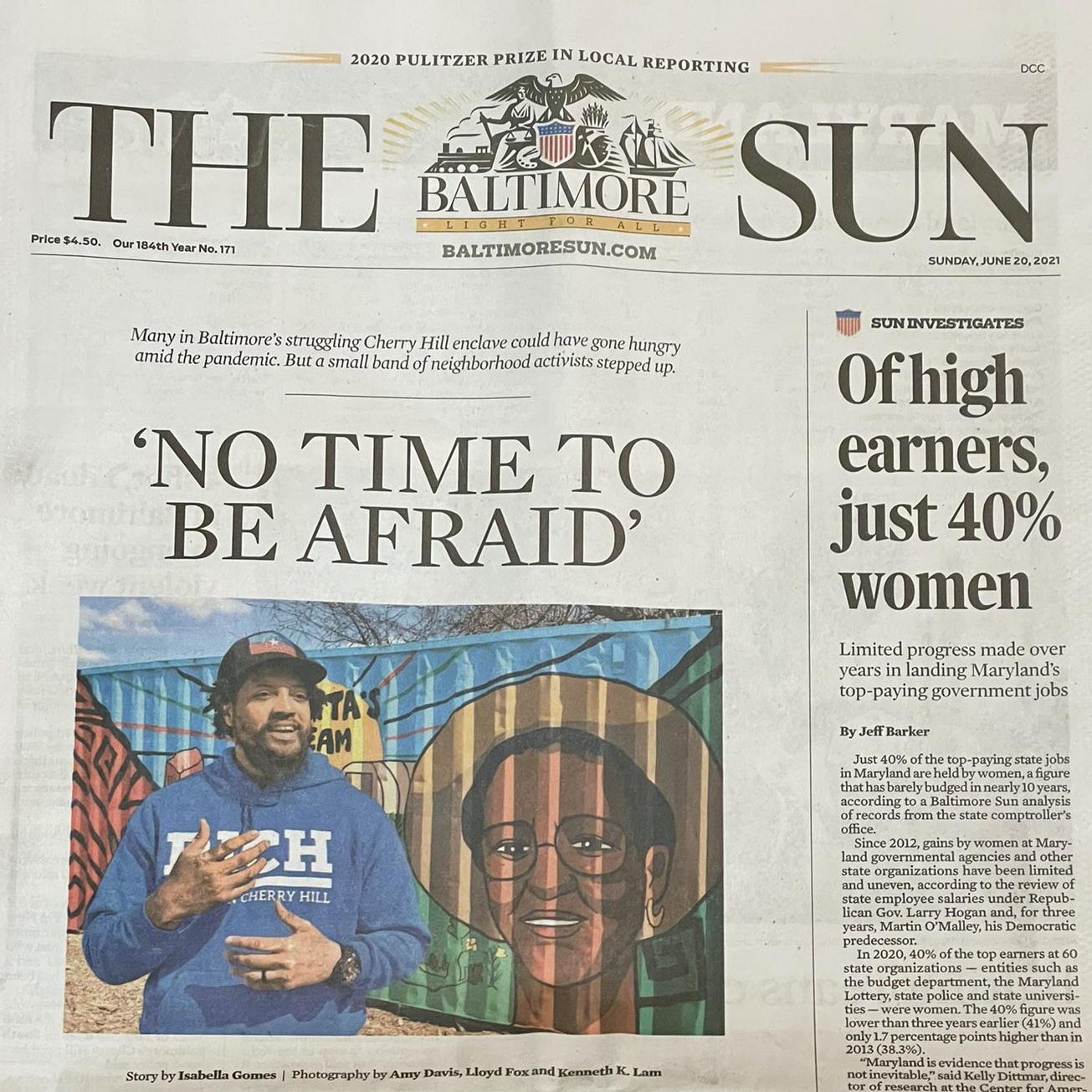
The Worst of COVID-19, the Best of Themselves
Cherry Hill, an isolated neighborhood of 9,000 people in south Baltimore, has its roots in Jim Crow segregation—carved out of an industrial zone next to the city’s dump and incinerator as a home for Black veterans of World War II and their families, at the insistence of whites elsewhere in the city. Today it’s a place with no grocery stores, a disproportionate rate of chronic disease, and more than half of its households living on less than $25,000 a year.
That it was hit hard by COVID-19, given its history, is hardly a surprise. What is surprising, and the subject of grantee Isabella Gomes’ wonderful story for The Baltimore Sun, is how the people of Cherry Hill pulled together to help themselves: delivering meals, making sure residents got health care services, and distributing more than 100,000 pounds of healthy groceries. “The pandemic threw us into the fire,” community activist Eric Jackson told Gomes. “Instead of burning up, we learned to operate within it. If COVID comes back to Cherry Hill, we’ll be ready.”
Grantee Miriam Gladstone, in a two-part series for Global Health Now, tells a similarly inspiring story about an even more isolated community—the Inuit inhabitants of Nunavik, some 900 miles north of Montreal. The community’s remote location plus stringent travel restrictions kept COVID infection rates low—but put huge strains on a health care system that largely relied on medical personnel flying in. One bright spot: development of the Inuultisvik Midwifery Service, a corps of trained Inuit midwives based in the community. “This is what needs to be happening in all Indigenous communities,” said Patrice Latka, a midwife from Toronto who has long worked in Nunavik.
Gladstone is our 2020 Reporting Fellow from McGill University where she is a second-year medical student. She completed her master’s at the London School of Hygiene and Tropical Medicine. Gomes is a former Reporting Fellow from Johns Hopkins Bloomberg School of Health. An infectious disease epidemiologist, she holds two master’s degrees, one from Johns Hopkins and the other from Columbia University School of Journalism.
They are examples of the extraordinary talent and diverse life experiences of our Reporting Fellows. This year’s class (48 strong) was announced earlier this month. You’ll be hearing more about them, I’m sure.

Impact
The Indian Supreme Court's committee for prison reform took note of the Pulitzer Center-supported Barred: A Prisons Project and has directed a study on all prison laws across Indian states. The project already prompted the Rajasthan High Court to revise policies that address caste in the state’s prisons, two petitions in separate High Courts, and the creation of a committee in the state of Maharashtra focused on ethical treatment of transgender prisoners.
This message first appeared in the June 22, 2021 edition of the Pulitzer Center weekly newsletter. Subscribe today.




